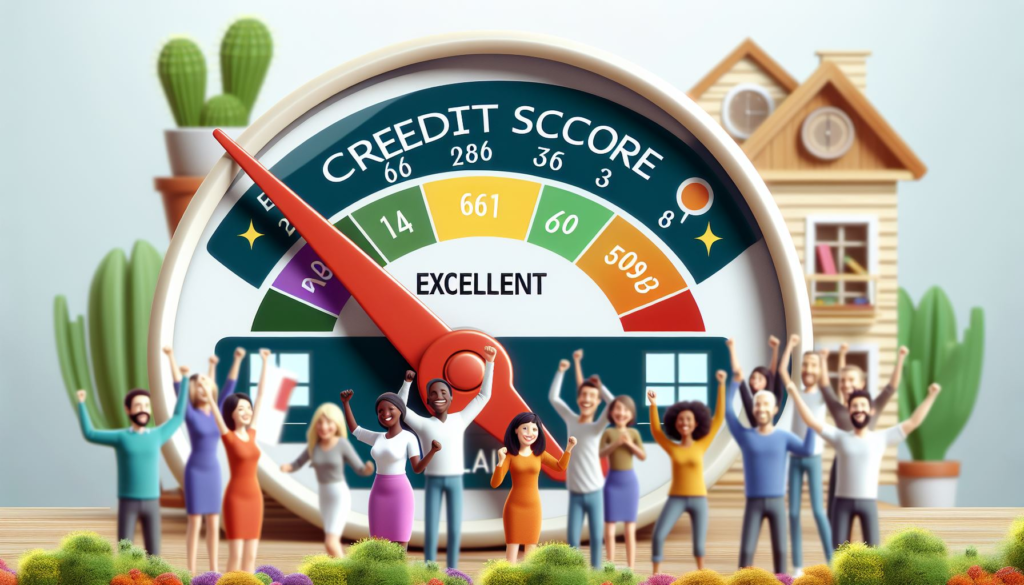
Do you ever think about why some individuals easily obtain loans with low interest rates, while others have difficulty securing a loan? Your credit score holds the key to the solution.
A credit score serves as a financial report card and is essential in your financial path. Lenders examine your credit score to assess your creditworthiness when you’re seeking a mortgage, car loan, or credit card.
What is a credit score, and how does it operate? What impact does it have on your loan approval chances, and how can you enhance it? In this article, we will examine these inquiries and others, giving you a thorough comprehension of the workings of credit scores for a loan.
Keep watching as we explore credit scores, making its complexities easier to understand and offering tips to improve your financial well-being.
Don’t forget, having information is powerful, and knowing how credit scores function can give you the ability to make wise choices about your finances. Okay, let’s begin now!
What is a Credit Score?

In basic terms, a credit score is a number that reflects how reliable you are with borrowing money. It serves as a financial report card for lenders to evaluate your trustworthiness as a borrower.
Distance: Credit scores usually fall between 300, deemed as low, and 850, viewed as high quality. Having a higher score increases your chances of loan approval and getting better interest rates. I cannot attend the meeting on Monday due to a prior commitment. Elements that impact credit rating, Your credit score is not simply a arbitrary number. The score is determined by various factors, with each one playing a specific role in its calculation.
History of Payments: The most important factor in determining your credit score is your repayment history, which makes up 35% of the score. This involves if you have made timely payments for your bills, any delayed payments, and if there have been any instances of defaults or bankruptcies.
Usage of debt: The proportion of debt you have relative to your total credit limit, known as debt utilization, accounts for 30% of your credit score. Having lower utilization rates is advantageous for your score.
Credit History Duration: Your credit score is influenced by the duration of your credit history, which makes up 15% of the total score. This consists of the age of your oldest account, the age of your most recent account, and the average age of all your accounts.
The Combination of Different Types of Credit: The combination of different credit types (credit cards, mortgages, student loans, etc.) makes up 10% of your credit score. Having a variety of different elements can enhance your overall result.
Fresh Accounts Created: Recent inquiries and the number of new accounts opened contribute to the final 10% of your score. Having multiple accounts within a brief period can decrease your score.
Role of Credit Score in Lending

Approval of a loan: When you request a loan, creditors rely on your credit score to quickly determine if they should loan you money and the terms they should provide. Having a good credit score shows that you have handled your credit responsibly in the past, increasing the chances of your loan application being approved by lenders.
Rates of Interest: Your loan’s interest rate is influenced by your credit score. Individuals with elevated credit scores generally meet the requirements for reduced interest rates due to being perceived as less of a risk. This indicates that by enhancing your credit score, you can reduce costs throughout the duration of your loan.
How to Improve Your Credit Score?

Raising your credit score is a process that takes time, not something that happens quickly. It necessitates continuous dedication and sound money management behaviors.
Below are some suggestions to enhance your credit score:
Payments made at consistent intervals: Paying your bills punctually is the best method to enhance your credit rating. This pertains to more than just your credit card payments, but also your rent, utilities, phone bill, and other forms of credit.
Reducing the amount of money owed: Paying off your debts can improve your credit score as well. This involves reducing your debts and maintaining a low utilization rate.
Restricting Further Credit: Having multiple new credit accounts in a short time frame can damage your credit rating. Only request new credit when it is crucial.
Conclusion

Having knowledge of how credit scores impact loans can assist you in making wise financial choices. To enhance the likelihood of being approved for loans with favorable terms, it’s important to develop good financial practices and consistently review your credit report.
Keep in mind that lenders take into account various factors, not just your credit score, when determining your eligibility for a loan. Additional elements, such as your earnings and work experience, also have an impact. While aiming for a high credit score is crucial, it’s equally important to uphold a well-rounded financial profile.
